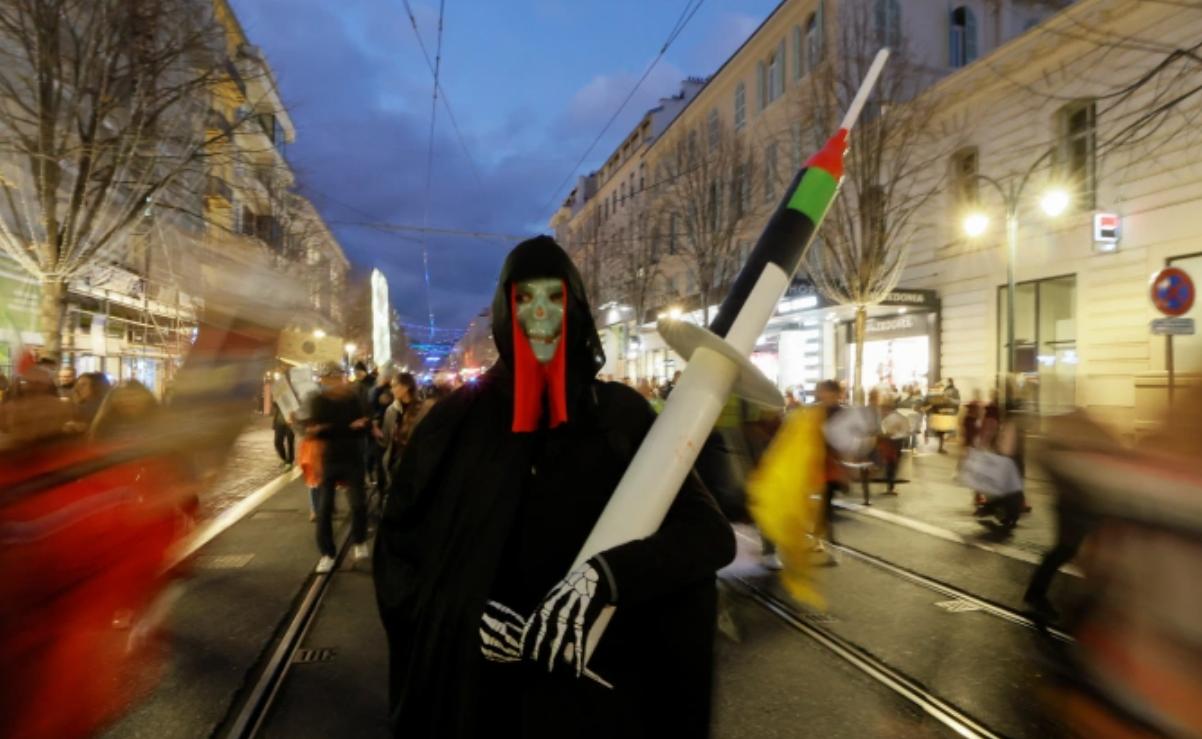The French National Assembly has earlier passed the vaccine pass bill, which is being considered by the Senate and is expected to be passed as soon as the local Sunday (16th). People in Paris and other cities took to the streets on Saturday (15th) to protest the implementation of the vaccine pass system. The protesters, who have emerged in various French cities, oppose a law that would impose stricter restrictions on people who have not been vaccinated against COVID-19, and parliament continues to debate the draft bill.

On Saturday, thousands of people took part in the demonstration, and many different political groups gathered. In the French capital, Paris, anti-EUROPEAN Union presidential candidate Florian Philippot launched one of the largest rallies near the Eiffel Tower. Other protests are reminiscent of the 2018-19 "yellow vest" campaign against French President Emmanuel Macron's economic reform plans, and more rallies have emerged in major cities such as Bordeaux, Toulouse and Lille.
Crowds chanted "say no to vaccines" or "let Djokovic go free," seizing on the example of Novak Djokovic, who is number one in world men's tennis. Djokovic is fighting the Australian government to compete in the Grand Slam Australian Open without vaccination. Pascal, a demonstrator in Bordeaux, told the outside world that "Djokovic is now our standard-bearer," who marched with his parents with children at a tennis club in a western city, and he also said the coach could lose his job by refusing to be vaccinated.
In Paris, demonstrators held French and regional flags with banners that read", "What they want to control is not the virus, but you". Two demonstrators, Lawrence and Claire, told AFP they were vaccinated, "but we are against vaccinating teenagers and we don't understand why they should be vaccinated because they are not in danger." ”
While officials have yet to announce the number of demonstrators as of late afternoon, in Lyon, Nantes, Bordeaux and Marseille, police or local authorities have counted about 1,000 people, respectively. Demonstrators hope to surpass the 105,000 people last weekend, some of whom may have been mobilized by Macron's statement in an interview with the newspaper. Macron said in an interview that he wants to "wipe out" unvaccinated people with new restrictions until they receive coronavirus injections.
In the early hours of Saturday morning, French MPs passed a vaccine bill in the upper house. The Senate is likely to finalize the bill on Sunday, after back-and-forth discussions between the two chambers about the minimum age at which the bill should pass and whether owners should be authorized to check consumer identity.
In the first step, a measure that went into effect on Saturday would cancel government-issued "health passes" that would be issued to thousands of people who had not received intensive vaccinations for seven months after their first session of injection. Under the law currently being discussed in Parliament, passes allowed to enter public places such as bars and restaurants will be transformed into "vaccine passes," meaning proof of injections will need to be provided. So far, people have survived a negative coronavirus test and their passes are still valid.
On Saturday morning, Juan Fernandez, 32, told AFP immediately after a shot, "It's urgent, when you're out, you need a health pass every time, which is the main reason I do it." "At present, the French government is facing a wave of faster-spreading Omicron variant infections, so it has vigorously introduced more stringent measures.
Meanwhile, in the Austrian capital Vienna, where the government's plan to force everyone to vaccinate against COVID-19 next month is under new pressure, thousands of protesters took to the streets to rally to protest the move. At a rally in the heart of Vienna, the crowd chanted slogans like, "The government must leave!" This has become a routine on Saturdays. The country's parliament is scheduled to vote on the issue next week, which has polarized the country as coronavirus cases have surged.
A poll in Profer magazine found that 51 percent of respondents opposed mandatory vaccinations starting in February, 34 percent of them opposed mandatory vaccinations, and 17 percent wanted to wait. The survey found that 45% of Austrians favour mandatory vaccinations starting in February.